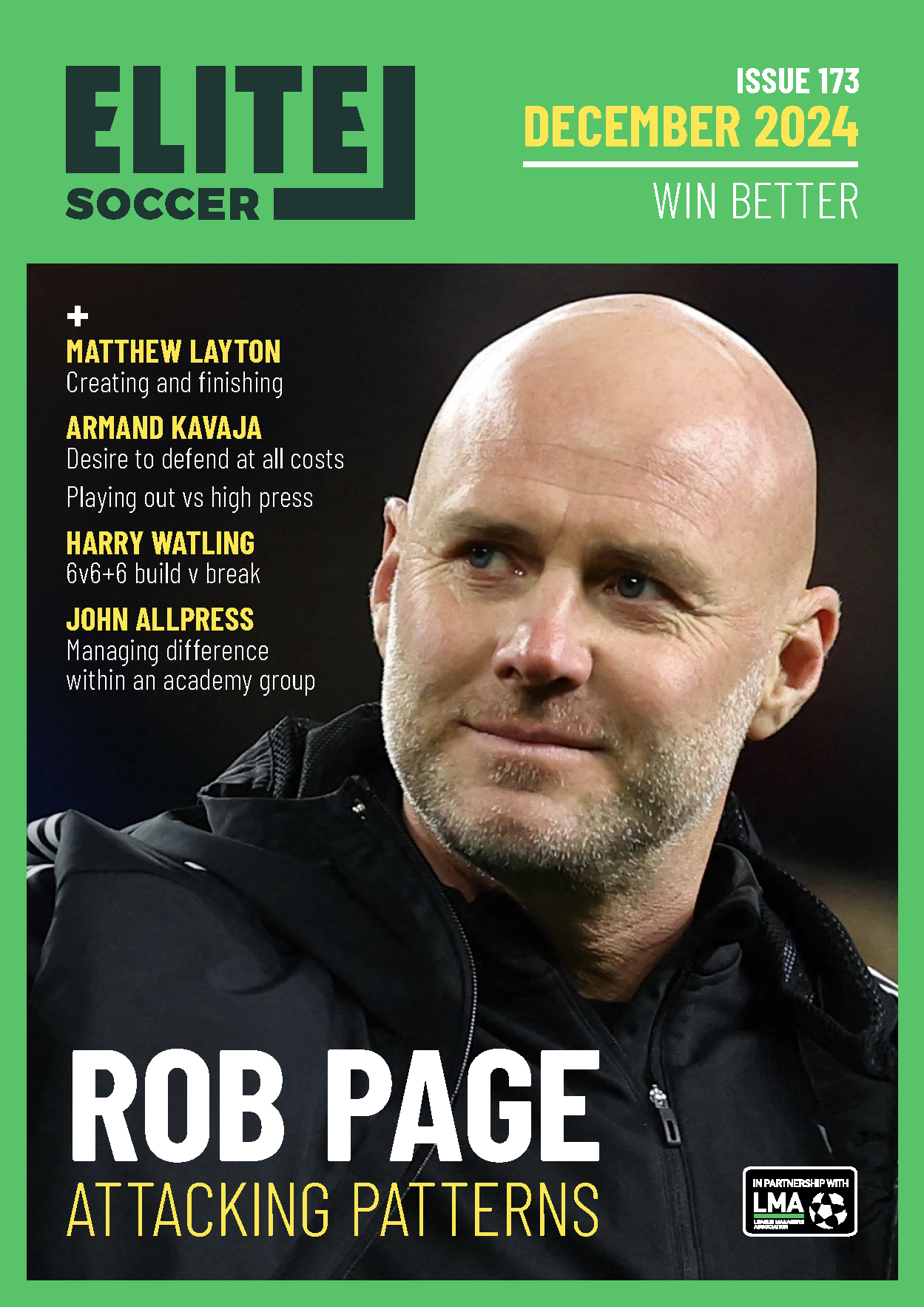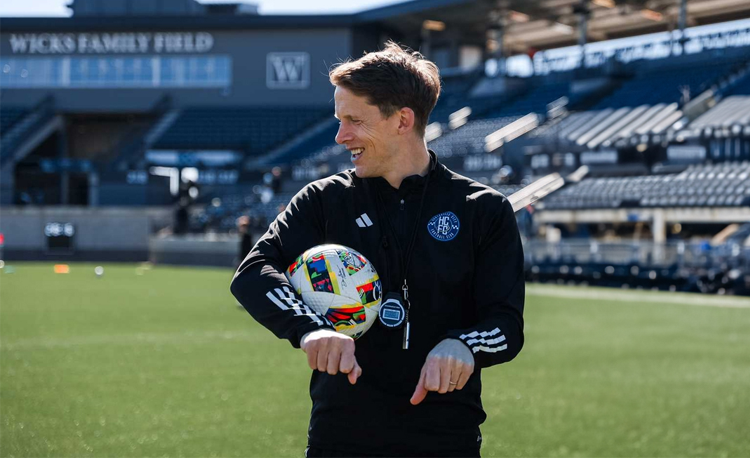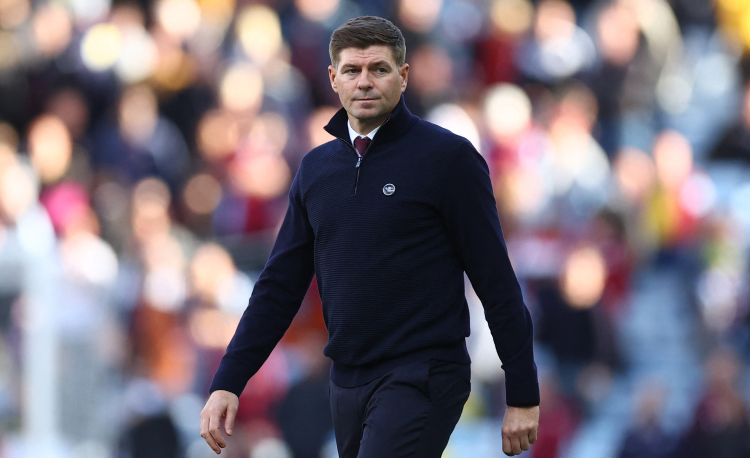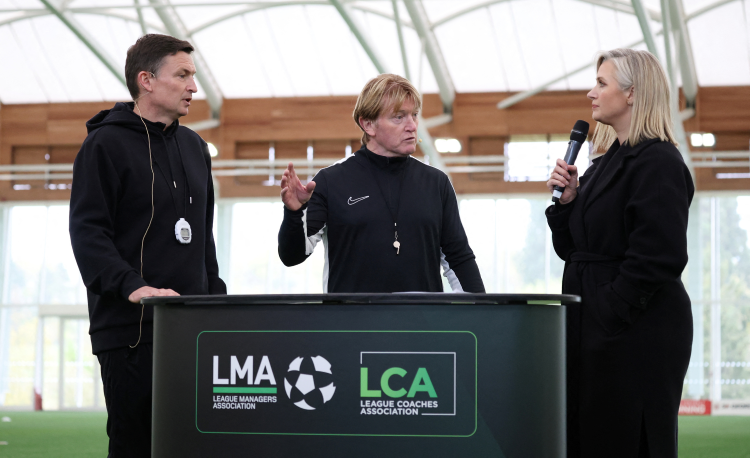You are viewing 1 of your 1 free articles
Core management disciplines
Few managers get the chance to manage overseas as early in their careers as Ian Baraclough. Since he took the helm of League of Ireland side Sligo Rovers, Baraclough has proven his worth not only as a coach but in a host of core management disciplines, as the League Managers Association discovers.
Baraclough had yet to hang up his boots as a player when coaching and management came knocking. When Nigel Adkins took over as manager of his club Scunthorpe United he invited Baraclough and another senior player, Andy Crosby, to join his coaching staff. Having shown an interest in coaching since his youth, Baraclough didn’t hesitate to accept.
As always when going from being one of the lads to being part of the team coaching and selection process, the transition was a challenge, one that relied on Baraclough’s maturity and natural man-management skills. But the experience of assisting Adkins provided a solid grounding and a great kick-start to Baraclough’s management career.
“I had a great relationship with Nigel; he was a great role model and to this day I still employ some of the processes we used back then,” says Baraclough. “One of the most memorable lessons he taught me was that there is no one-size-fits-all approach to managing people; you have to deal with players as individuals as well as collectively, and ensure that everyone feels included, whether they are on the bench that week or not. I still put a lot of work into my training sessions to make sure every player gets as much as possible from them.”
His big ‘in’ to management came in 2010, when Adkins moved on to Southampton and Baraclough, despite his inexperience, was offered the chance to fill his shoes. While he realised it would be a steep learning curve, it was an opportunity he could not pass up. Unfortunately, a little over six months after taking the position, the young manager got a taste of the impatience of modern management when his tenure was terminated unexpectedly.
“I am still proud of what I achieved during my short spell as Scunthorpe manager and felt that our season was very much still alive when I lost my job,” he says. “At that time, even being outside of the relegation zone was a success for Scunthorpe; they still haven’t been any higher since.”
Ousted from the world of football for the first time since leaving school at 16, it was a bitter pill to swallow. Yet, Baraclough used his time out of the game wisely, reflecting on his successes and failures, strengths and weaknesses as a manager and determining how he would need to improve. He observed other managers and coaches at work, coached part-time at the Leicester City Academy and visited the renowned academy at Le Havre in France, where he picked up ideas and approaches, some of which he has implemented in his daily routine.
Green shoots
Then, after a break of 11 months, the call came that Baraclough had been waiting for, albeit from an unlikely source. League of Ireland side Sligo Rovers was without a leader following the departure of Paul Cook to Accrington Stanley and Baraclough was invited to interview.
“Within a week, I had accepted the role and had taken charge of the first league match of the season,” he says. “I had never imagined that I would find myself taking a job abroad so early on in my career, but in management you have to be adaptable.” You also have to be prepared to make sacrifices, he adds, one of the toughest parts of the job being leaving his very supportive family behind in Leicester.
Baraclough’s first challenge at Sligo was proving himself worthy of the role and ensuring he didn’t upset the apple cart. While new managers are normally appointed to sides that are perceived to be performing below par, Cook had achieved great success with Sligo, winning the FAI Cup and the League Cup the previous two seasons. With the fans anxious that their club might fall back in the hands of a relative unknown, Baraclough knew he needed to win them over.
“I was taking over a team that was on an upward curve, so I was conscious of not trying to change too much, too soon,” he says. “It helped that when I was appointed I didn’t bring any of my own coaching staff with me and I couldn’t sign any new players because the transfer window was closed,” he adds. “So I embraced the existing staff and threw myself into the role.”
The fact that his football philosophy is similar to Cook’s also helped to make the transition smoother. “Like him, I want to see expansive football,” says Baraclough. “I believe that possession is key and want my players to keep the ball on the ground.”
Working hard and adding more professionalism to the players’ daily routine, Baraclough’s impact was immediate as he led Sligo to the League of Ireland trophy for the first time in 35 years.
Foreign body
Whereas elsewhere in Ireland, fans’ attention is divided between Gaelic sports, rugby union and horse-racing, football is Sligo’s number one sport. “When the football club is doing well, the whole town and local businesses thrive as well, so 2012 was a great year,” says Baraclough. “The club’s success and the fact that the Champions League came to town was a much-needed pick-me-up for the local people. Hearing that iconic music play before each match was an absolute spine-tingler.”
Sligo, one of only five or six full-time clubs in the League of Ireland, is a growing business with a turnover of over £1.6 million. It is debt-free and, as a co-operative, its ground is owned by the people and can never be sold off.
With the help of sponsors and local people, the club erected a new stand in a matter of months for its first-round Champions League tie against Ole Gunnar Solskjaer’s Molde, which sold out. For Baraclough, being part of the club’s development has been a valuable education. “Our success has meant we’ve since been able to invest more in the club, improving the match-day experience that we can offer the fans,” he says.
Working under certain financial constraints has also tested the manager’s initiative and resolve, as Sligo works hard to operate within its means; Baraclough saw his budget cut by 20 per cent this year. “It’s a good test for my skills as a manager, because I need to ensure we remain good enough to compete at the top,” he says. “This football club is so important to the community, so we will never stretch things to the limit and put it at risk. As a custodian of Sligo, I have to understand that.”
It has been an incredible two years for Baraclough at Sligo Rovers. While the club didn’t retain the League title in 2013, it came a highly respectable third, earning qualification for the Europa League, and won the FAI Cup. And setting aside the number of games and silverware won, it has been invaluable for the manager’s personal and professional journey.
“I’ve been very fortunate to get experience of managing in European competitions so early in my career, which I know will be invaluable moving forward,” he says. “Having lost my job at Scunthorpe after such a short period of time, I think there will always be a burning ambition to get back into English football management at some stage. I’m keen to demonstrate what I have learned and how I have developed as a manager.”
Editor's Picks
Using the goalkeeper in build-up play
Pressing principles
Intensive boxes drill with goals
Penetrating the final third
Creating and finishing
My philosophy
Pressing initiation
Compact team movement
Defensive organisation
Coaches' Testimonials

Alan Pardew

Arsène Wenger

Brendan Rodgers

Carlos Carvalhal

José Mourinho

Jürgen Klopp

Pep Guardiola

Roy Hodgson

Sir Alex Ferguson

Steven Gerrard
Related
Principles in possession
Coaches' Testimonials

Gerald Kearney, Downtown Las Vegas Soccer Club

Paul Butler, Florida, USA

Rick Shields, Springboro, USA

Tony Green, Pierrefonds Titans, Quebec, Canada
Join the world's leading coaches and managers and discover for yourself one of the best kept secrets in coaching. No other training tool on the planet is written or read by the calibre of names you’ll find in Elite Soccer.
In a recent survey 92% of subscribers said Elite Soccer makes them more confident, 89% said it makes them a more effective coach and 91% said it makes them more inspired.
Get Monthly Inspiration
All the latest techniques and approaches
Since 2010 Elite Soccer has given subscribers exclusive insight into the training ground practices of the world’s best coaches. Published in partnership with the League Managers Association we have unparalleled access to the leading lights in the English leagues, as well as a host of international managers.
Elite Soccer exclusively features sessions written by the coaches themselves. There are no observed sessions and no sessions “in the style of”, just first-hand advice delivered direct to you from the coach.









